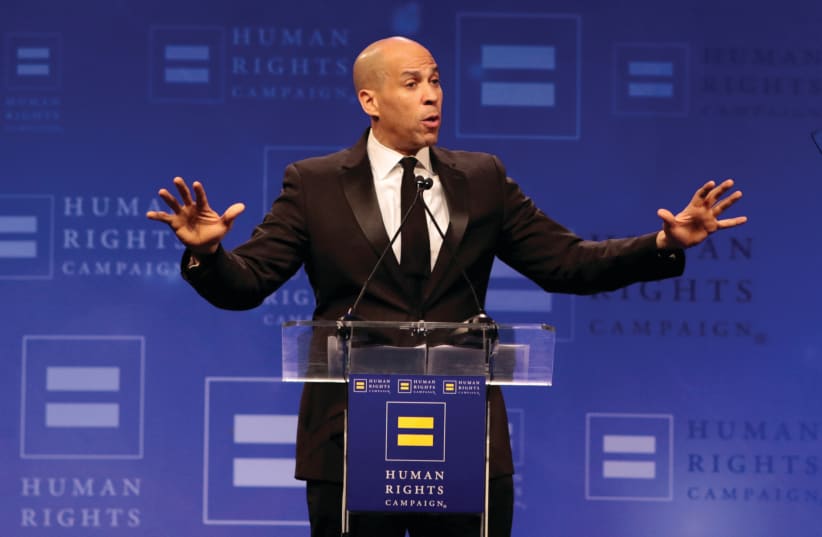The "Justice for All" trip, which includes visits to the early voting states of Iowa and Nevada, will center on economic policies, including Booker's proposed "baby bonds" that would give every child a government-run savings account at birth.
During the first few months of the year, Booker has focused his campaign on his own personal story - including his seven-year stint as mayor of Newark - and his message of unity and love as an antidote to extreme partisanship.
But Booker has yet to see his campaign have the same sort of bounce that rivals like Pete Buttigieg, the mayor of South Bend, Indiana, and California Senator Kamala Harris have enjoyed thus far.
Public polling has him somewhere around seventh among more than a dozen candidates, while his fundraising total of $5 million for the first quarter of the year lags well behind fellow senators Bernie Sanders and Harris.
Booker's campaign aides on Thursday dismissed concerns about polls at this early stage, noting that the Iowa nominating contest is still nearly 10 months away. They emphasized the workmanlike campaign they have run thus far, holding dozens of events in key early-voting states and building what they said was a state-by-state staff that rivals any campaign.
"You've got to organize and got to get hot at the end," Booker's campaign manager, Addisu Demissie, told reporters. "We're not building this campaign to win polls in April 2019. This is a long race and there are going to be a lot of ups and downs."
In recent campaign appearances, Booker has touted his $60 billion baby bonds proposal, which he says would essentially close the massive wealth gap between white and black families.
Under the plan, the government would deliver a $1,000 savings account for every child born in the United States and would contribute funds each year based on income levels, with poor families receiving more and well-off families receiving nothing.To fund the program, Booker proposes raising taxes on the wealthy. Children at the lowest end of the scale would have nearly $50,000 by age 18 to invest in things like education, houses, retirement or entrepreneurship, according to the senator.
